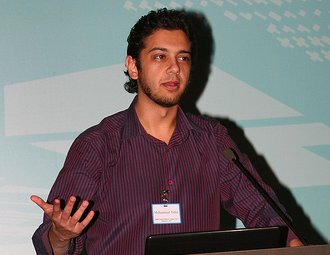Aisling Irwin
News and features editor, SciDev.Net
I’ve never heard a more passionate plea for rigorous science journalism in the developing world as I did at the closing session of the conference.
Arab science journalists who had been involved in the uprisings of Egypt and Tunisia earlier this year were describing their experiences.
And, for one of them, the events of Tahrir Square were a defining moment not just for his life as a citizen but also as a science journalist.
“Looking ahead I see a huge role for journalism and in particular science journalism,” Mohammed Yahia told the meeting. “All our problems are related to science.”
So how did he deduce this from his days of rebellion in the Square?
It began rather pragmatically. Yahia had been skiving from his duties as editor of Nature Middle East to play his part in the epochal events of late January and, after three days, his London bosses rang to inquire when he would be returning to his work.
“I had to come up with a reason to be a science journalist in Tahrir Square,” he explained.
And he did. He roamed around finding stories about protesting scientists, angry students and makeshift instruments being used in contrived hospitals.
“If you looked closely enough there were so many science-related stories … there were tons of stories,” he said.
And thus the fight for democracy was fused with the quest for critical science journalism.
Now, as Egypt tries to pull itself together and tackle festering issues such as 40 per cent illiteracy and the scarcity of food and water, he sees that science journalists need to be monitoring his country, and in particular its pledge to put science at the heart of its recovery.
“It can’t be the passive science journalism that was taking place in many of the state-run agencies. It needs to be more active – we need to push for more freedom.”
Afterwards I asked him if his views applied beyond Egypt.
“A lot of people look at science journalism as a form that is not as critical as political journalism,” he said. “But that’s not right.
“The vast majority of problems that the developing world will be facing in the future are science-related.
“I really think science journalism should be a push to hold people accountable, to take a more proactive role.”
A subject close to our hearts at SciDev.Net.




You must be logged in to post a comment.